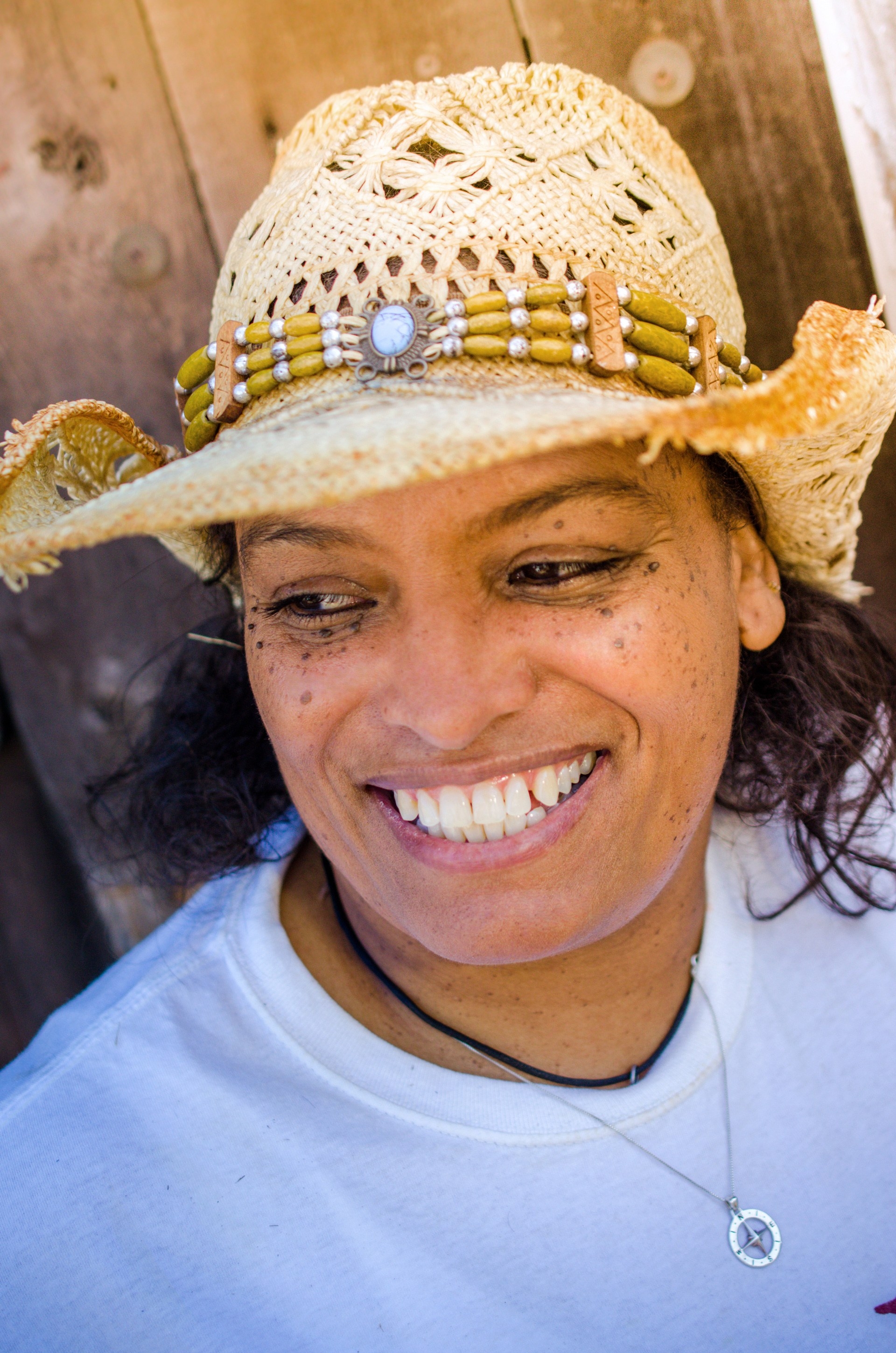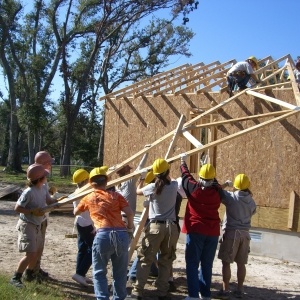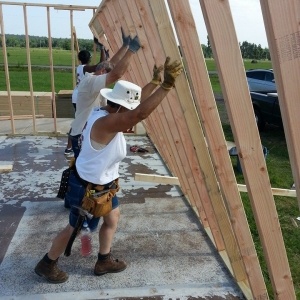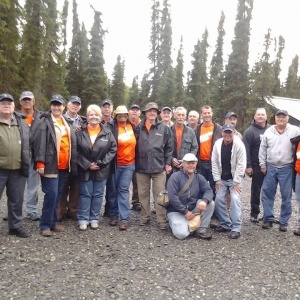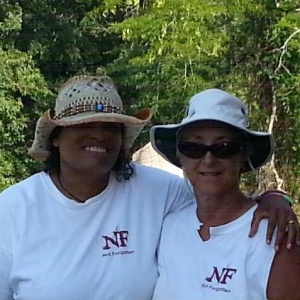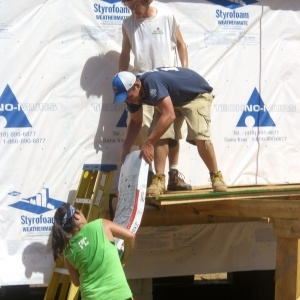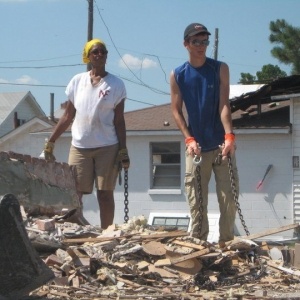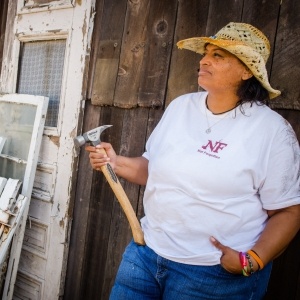Relieved
The strength Charlene Marie King gains from helping others keeps her going. “It all comes back to loving people,” she says.
December 20, 2014
Charlene Marie King ’87 rode buses all over Los Angeles as a child. Reading as she traveled, she lost herself in the adventures of Nancy Drew and the Hardy Boys. She sought no destination, only an escape from the nightmares of home.
Her family struggled with poverty, making it difficult to stay in one place for long. She could be uprooted and find herself in a new elementary school at any time. Worst of all, her home was a place of abuse and fear.
The roaring engine and meandering routes of the bus gave her sanctuary in a world where she had trouble finding any. “It was safe,” she said. “Kids weren’t getting snatched back then like they are now.”
The University of La Verne graduate has since escaped those adversities, rebuilding her fractured life bit by bit. She now dedicates her time to rebuilding the lives of others through her disaster-relief organization, The Not Forgotten Project.
Despite having a bachelor’s degree in psychology that could land her a full-time paying job, she sacrifices that kind of stability and lives with her sister’s family so she can leave on a moment’s notice. There have been many such occasions since she started the organization in 2008.
Of the 25 trips she has taken to help communities torn by natural and unnatural disasters, King has been to the Gulf Coast 19 times for hurricane relief. She and her team members sifted through ashes in Colorado Springs, Colo., in 2012 to help families reclaim items thought lost during that summer’s devastating fires. She helped clean up wreckage in the wake of the 2011 Joplin, Mo., tornado. She flew to Galena, Alaska, in September to help a community of 500 residents whose homes were severely damaged or destroyed by flooding, caused by a broken icecap that blocked the mouth of the Yukon River.
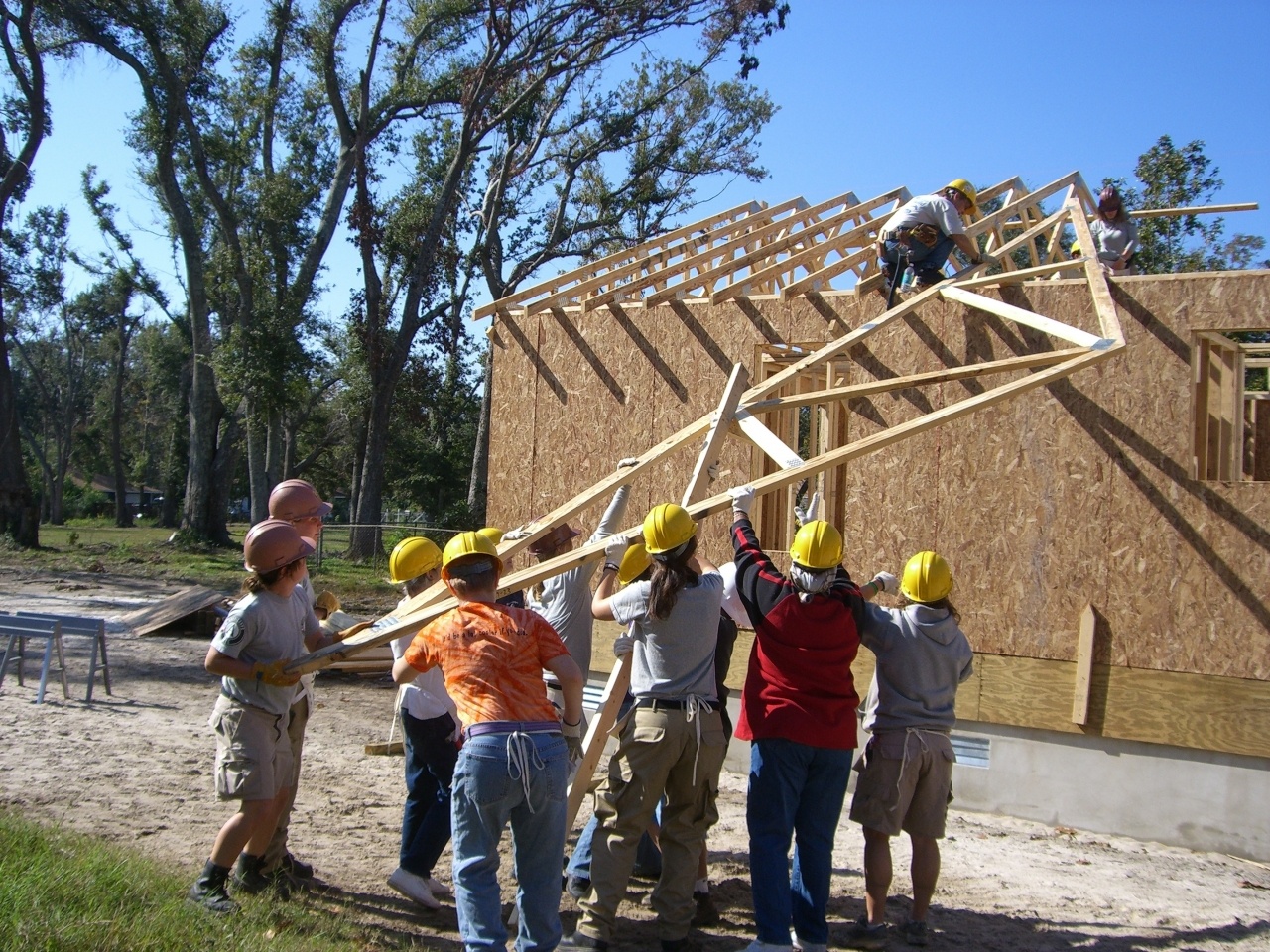
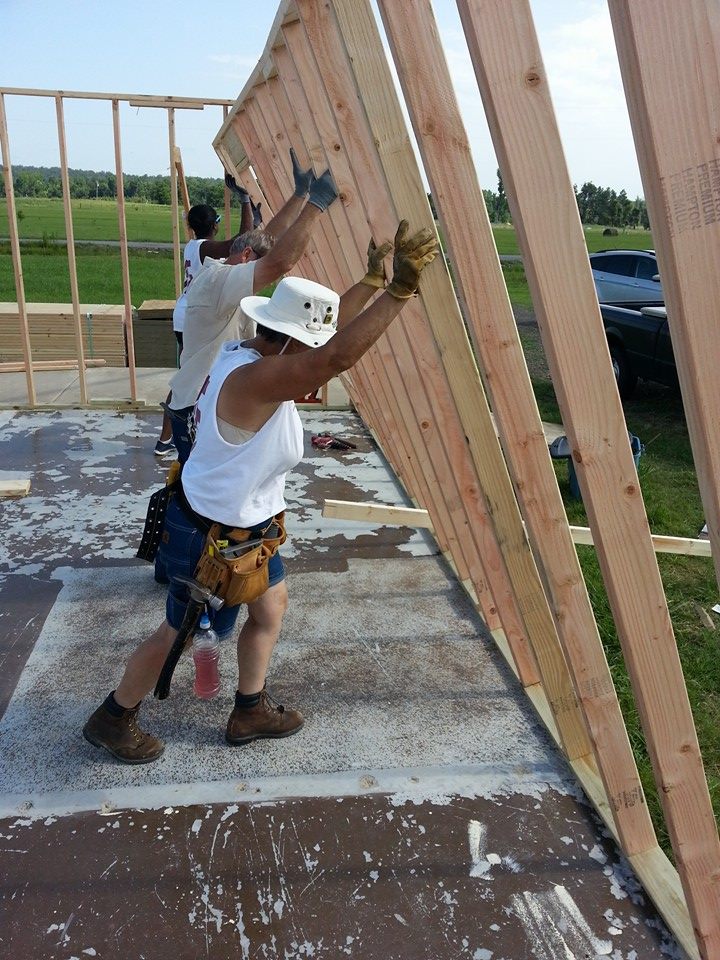
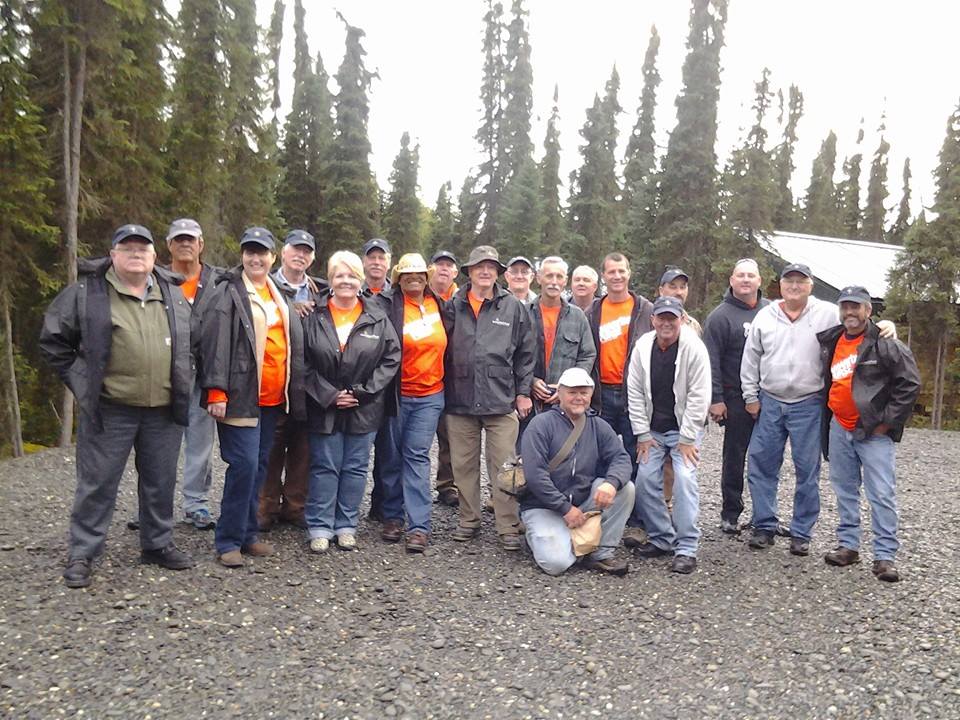
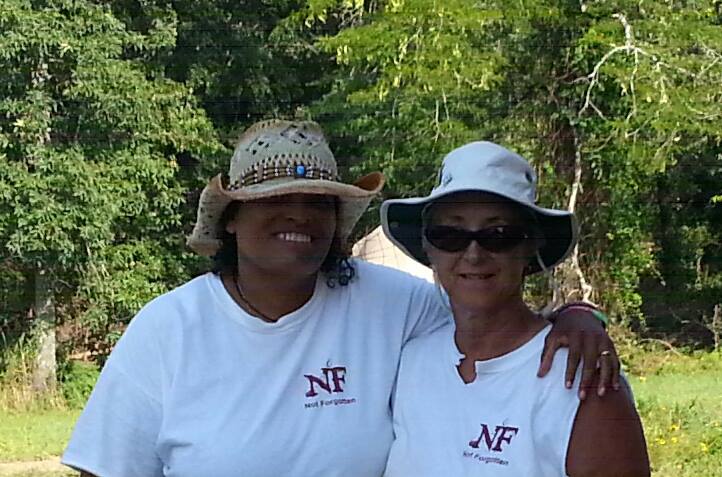
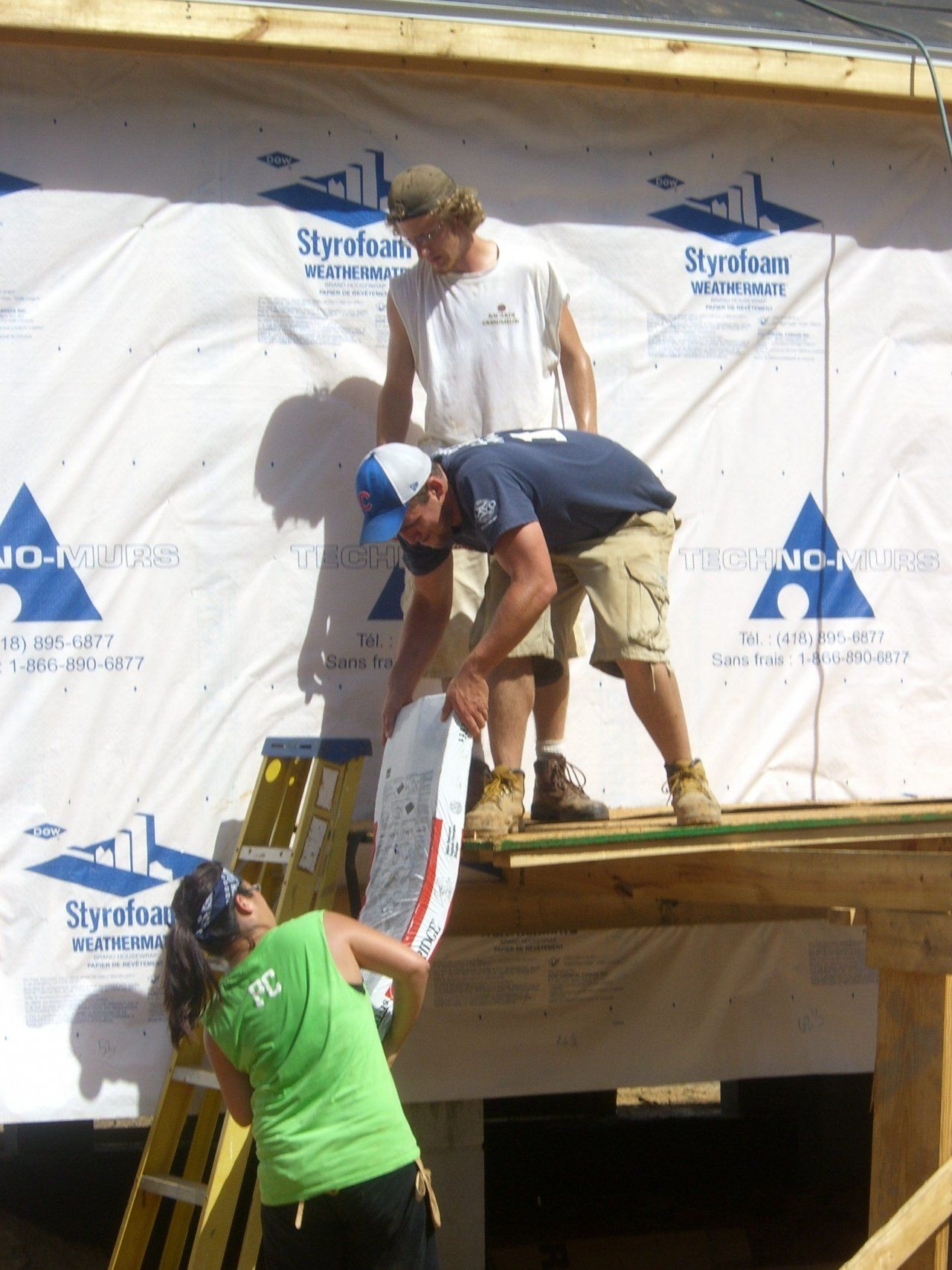
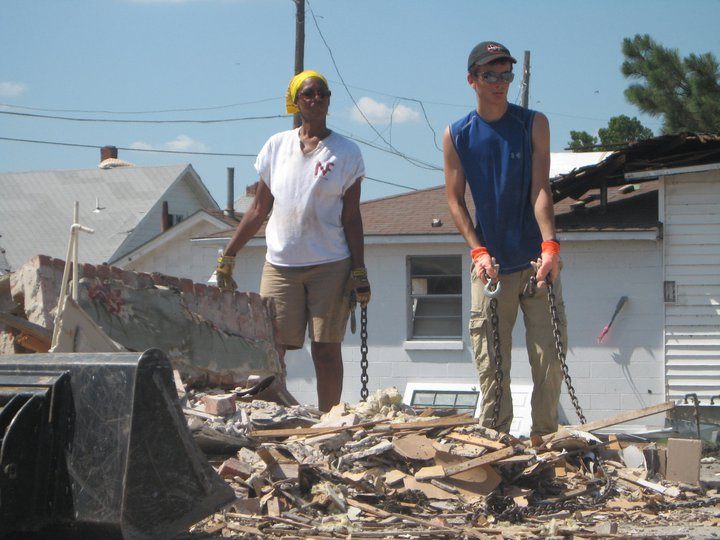
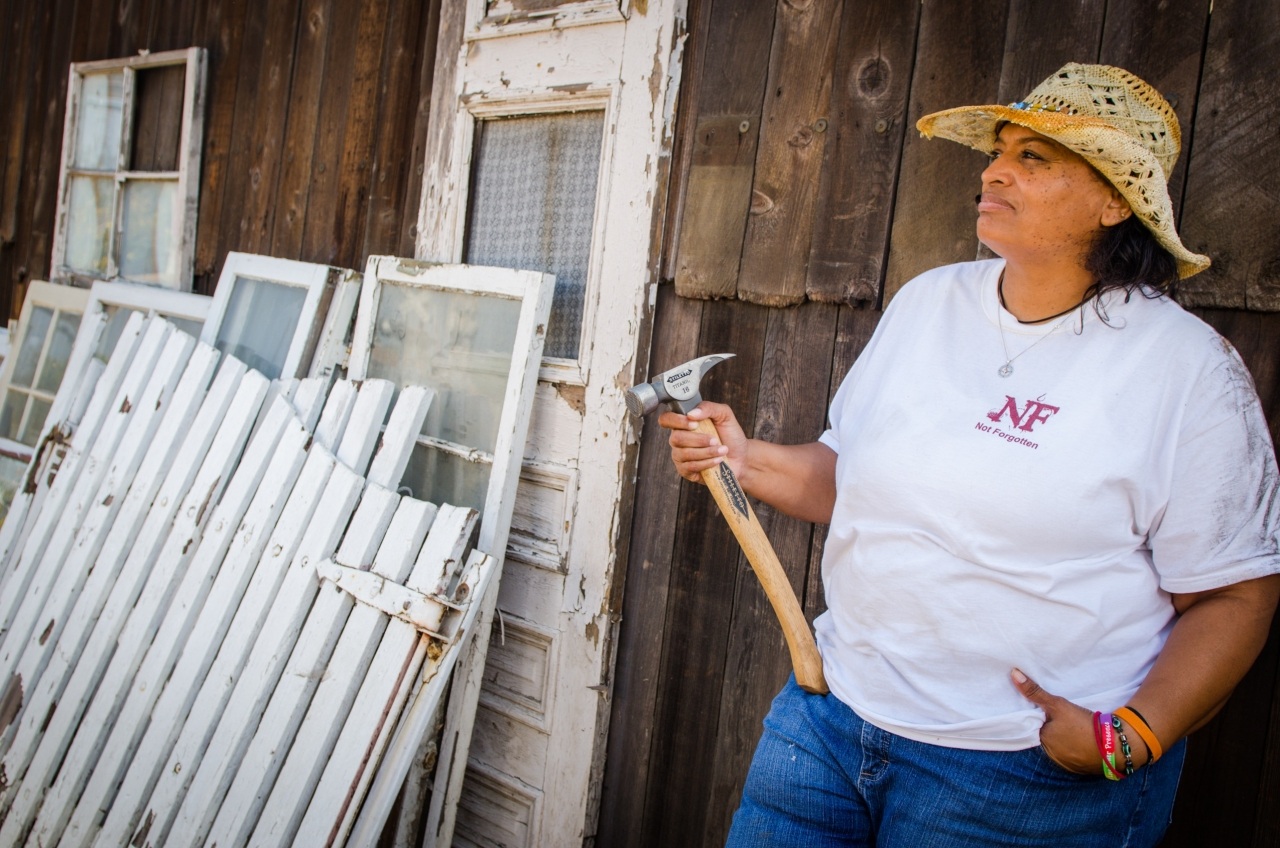
She says this is the job God wants her to do. But sticking with it has not been easy, especially when she sees growing piles of bills. “I think this is probably it for the long haul,” King said. “I tried to quit last year. I was sitting in the library, crying to God about needing a job and having options.”
Within minutes, she began receiving text messages from her colleagues about a tornado in Moore, Okla. Donations from friends and churches followed, paving the way for a relief trip.
Fellow La Verne alumna, Helen Lewis ’86, describes King as joyful despite her traumatic past – choosing to ease the burdens of others rather than carry around her own baggage. King stayed with Lewis, a Pennsylvania resident, twice in 2013 for Hurricane Sandy relief.
“There are people that God has selected as angels among us, like God’s warriors or soldiers,” Lewis said. “She is one of them.”
Early Burdens
King’s family relocated from Riverside to Compton when King was 5-years-old to be closer to her aunt and some cousins. Her parents often could not make the rent, and her father was once shot in the chest by an apartment complex manager. He nearly died.
Poverty forced them to move frequently. King went to six different elementary schools. “Every time we changed schools, it was really hard for me,” she said.
Meanwhile, King harbored a dark family secret: two family members had been molesting her. The abuse began when she was 3-years-old and continued through her early teenage years.
Neither relative faced conviction. Police arrested one after allegations surfaced, but released him soon after.
Despite the family’s financial hardships, King’s mother had no problem giving someone a place to sleep in her apartment if the person had nowhere to go.
“We didn’t have a lot, but knowing someone who had less, we’d give them what we had,” King said. That influence rubbed off on King and her siblings.
The family eventually found stability when King was in junior high school. She joined the girls softball team at Compton High School. She flourished academically.
“School was the place I went to be away from home,” King said. “It was my refuge. It was where I went to not think about the things going on in my head.”
During a “college night” event in her junior year, the University of La Verne came to visit. The friendliness of staff, the small size of the school, and the distance from Compton appealed to her. She chose to pursue a psychology degree at La Verne and received a full scholarship.
Demons Resurface
King described La Verne as a place where she reinvented herself. “It was the first time I felt like I belonged,” she said. She settled into Stu-Han Residence Hall with three roommates, diving into classes and college life.
But she had not properly dealt with her childhood traumas. King had no interest in telling classmates about her past, let alone a counselor. When the demons came calling, she turned to alcohol. “It took that to beat down those ghosts, those demons that were attacking me,” she said.
In order to regain control of her life, King sought counseling, but had trouble embracing it. However, she soldiered on, graduating from La Verne in 1987.
King finally got a taste of what she read in the Nancy Drew novels during one of her first jobs out of college. She worked for a private investigator, and also took a position as an engineering assistant for a downtown Los Angeles construction company.
Not Forgotten
When she was in her mid-20s, King went back to counseling, this time, for the purpose of healing.
She started a job as a counselor at David and Margaret Youth & Family Service in La Verne in 1992. King also worked as a YWCA youth counselor for junior high school girls. At the Boys & Girls Club in Pomona, she led the “Sister-Two-Sister” mentor and volunteer program.
The seed for disaster relief was planted in 2006 when she began working with Habitat for Humanity along the Gulf Coast. While many relief workers flocked to Louisiana, King went to Mississippi a year after Hurricane Katrina hit. She said the devastation there was just as bad, if not worse. The storm swept away buildings, homes and left other areas submerged.
Damage was not limited to structures. King heard about people wanting to get back to work, but could not because of their destroyed homes. She heard about straight-A students slipping to Cs and Ds from stress.
A woman she overheard in an airport described living with Post Traumatic Stress Disorder, an affliction also plaguing her children. She worried that people had forgotten about her community.
King realized there was a void that needed to be filled. Someone needed to continue helping these communities after first responders left. The Not Forgotten Project was born.
Her drive to start the organization also came from Pat Smith, a member of Habitat for Humanity’s international board of directors. His gift for rounding up volunteers from multiple states impressed King. But she only got to meet him once. He died in a plane crash in 2006 while heading to the Gulf Coast.
Vilonia, Ark., is one of the most recent towns King helped. The small suburb of Little Rock lost many homes and businesses to an April tornado that killed 15 people. For resident Karla Arendall, it was the second time she lost her home to a twister in three years. Not Forgotten helped her put the pieces of her life back together.
“They came over and began putting up walls on my slab,” she said. “If it wasn’t for them, I probably wouldn’t have gotten it started so soon. They did a great job and did it quickly, too.”
The strength King gains from helping others keeps her going. “It all comes back to loving people,” she said.
